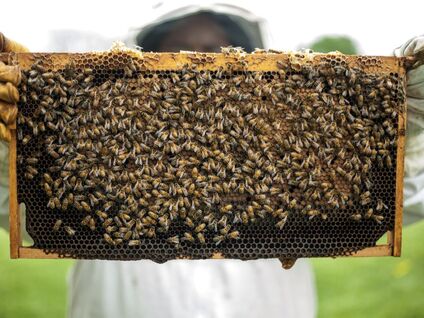Dr. Samantha Noll
|
|
Photo: Detroit Water Brigade
|
For many people, the world feels like it’s spiraling out of control, as we face overwhelming issues, such as ensuring food and water security, mitigating climate change impacts, and learning to live in a world without many of the species with whom we share this planet. In this context, some hope that technology can help us face these challenges, but cutting-edge technologies (such as genomics, artificial intelligence, and clean energy) bring about a host of other ethical issues. My research engages with the challenges that we face today, in an increasingly complex world. In short, my work is problem oriented, meaning that it focuses on analyzing real-world problems and the impacts of potential solutions, as well as developing tools that may be useful for bringing about change. My engaged philosophical work includes the following areas:
|
PHILOSOPHY OF FOOD & Agriculture |
ENVIRONMENTAL PHILOSOPHY
|
Philosophy of Technology
|
|
Philosophy of Food & Agriculture:
|
|
Environmental Impacts of Climate Change:
Climate change is producing observable environmental impacts around the globe, such as shrinking glaciers, rising sea levels, changes in weather patterns, and more intense heat waves and wild fires. Additionally, biodiversity levels are shrinking, as extinction rates rise, and plant and animal species are being forced to shift their ranges. In this context, societies around the world will have to adapt to environmental changes and to the new realities of living in the "Age of the Anthropocene." Hard decisions will have to be made and these decisions will have wide-ranging consequences. Understanding the ethical and value-laden implications of these decisions is imperative. |
Looking to the Future
Technological Innovation & Application:
Technology has the potential to help address a wide range of problems that we face, from increasing food security, to providing clean energy. However, as climate change illustrates, technology is often a contributor to our current dilemmas. My work engages with the expanding scope and unprecedented impact of technologies, in order to help cultivate a critical understanding of the practical consequences of their application. Technologies can be utilized in a multiplicity of ways. As we move forward, it is imperative that we discuss the ethical and social implications of these applications. In particular, my research focuses on the application of genomics technology in the context of agriculture and medicine. |




